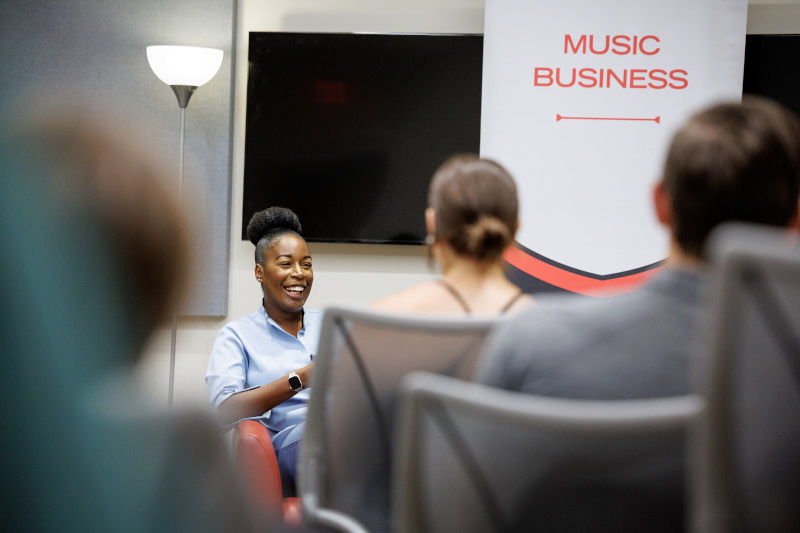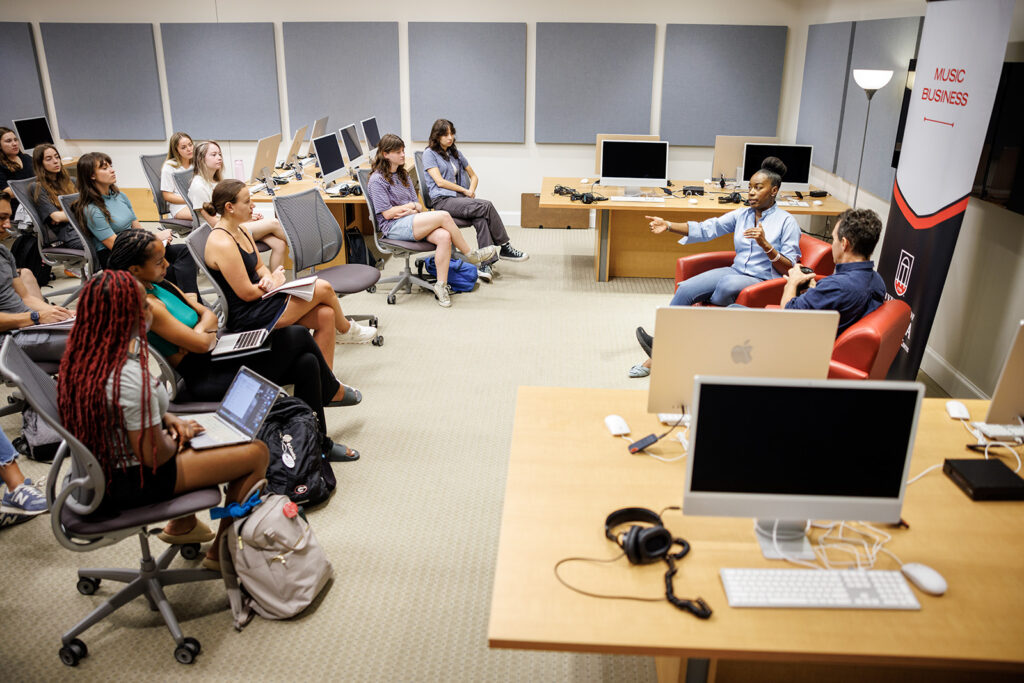When young artists come to Shay Lawson to discuss their future in the music business, she has one message: Just say no to record contracts.
“You don’t need a record label for anything right now,” she told students in the Terry College of Business Music Business Program. “I work with a kid right now — legit like a high school sophomore — who has recorded full albums on his iPhone in his closet and has more than 1 million streams. So yeah, why would you sign your life away? Why would I give you ownership of my setup if I can do this for free and make all the money myself?”
Lawson has worked with recording artists and small businesses for more than a decade and teaches entertainment law at Emory University. She is a board member of the Atlanta Chapter of the Recording Academy, the organization behind the Grammys, and on the Songwriters of North America board. Billboard named her their 2022 Top Music Lawyer.
Lawson, who attended Case Western University Law School but visits the University of Georgia every few years, met with students and Music Business Program Director David Barbe on Sept. 8 to discuss the state of intellectual property protections and the music industry.
Lawson’s career in entertainment law has spanned more than a decade of revolutionary change in the music business. The advent of streaming means artists are no longer dependent on labels to distribute physical goods such as CDs or records. The connection artists build with fans on social media makes record companies’ promotional arms less relevant, Lawson said.

In recent years, Lawson has seen record labels abdicate the artist development part of the music business to social media.
“They no longer want to waste the money or make the investment in building an artist up or breaking new artists the way that you used to,” she said. “They’ll wait for the fans to do it. If you don’t already have a million followers, they don’t want you … They want a solid product to put on the market. There is no breaking new artists.”
Today’s artists know that, and it gives them more power in negotiating with labels, she said.
While the three biggest record labels — Warner Music Group, Sony Music Entertainment and Universal Music Group — have seen five or six years of record revenue and profits thanks to streaming, signed artists make the least from each stream.
Label-affiliated artists may get prime placement on streaming platforms and get more streams overall but often end up making less than independent artists who get a fraction of the attention, Lawson explained.
While she and her clients are still working to solidify the best strategies in the new music environment, Lawson told the music business students the thing making her and fellow intellectual property attorneys nervous is the impact of artificial intelligence on the entertainment industry.
“Everybody’s arguing about it right now,” she said.
If generative AI is using access to existing music and art to learn patterns and create new work, is that a copyright infringement, she asked.
“We all listen to music, we all read books,” she said. “One of the number one interview questions people ask is ‘Who were you inspired by? Who did you listen to?’ What’s the difference between you being inspired by listening to a million James Taylor and Dolly Parton albums and then making your own album, and the computer doing the same thing? I can see the arguments in both directions; I’m just here for the wild ride and the influx of cases.”

